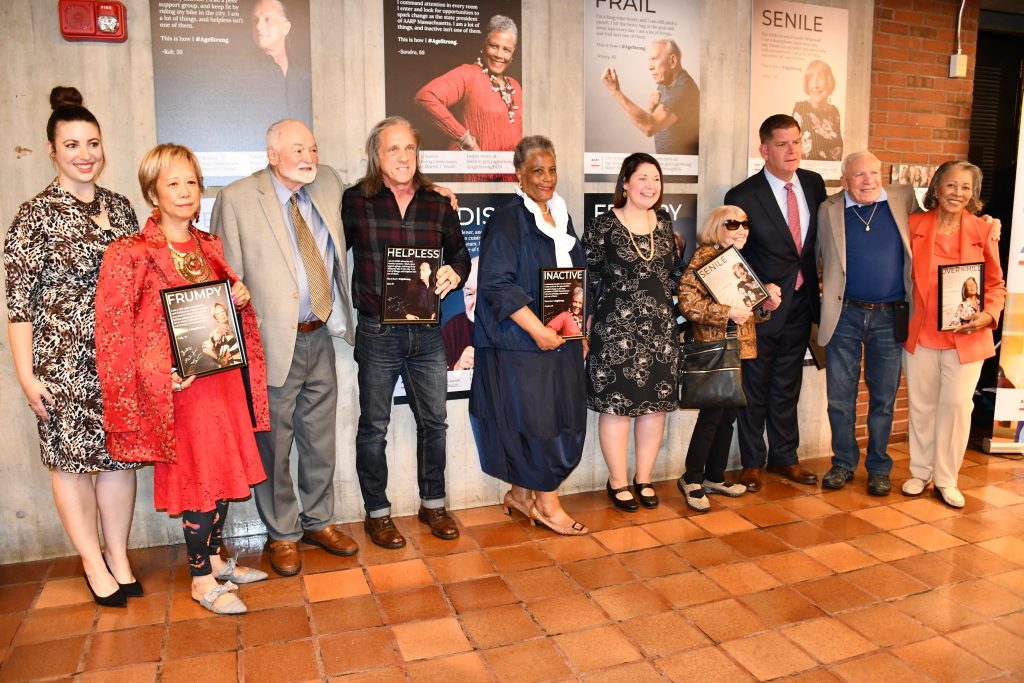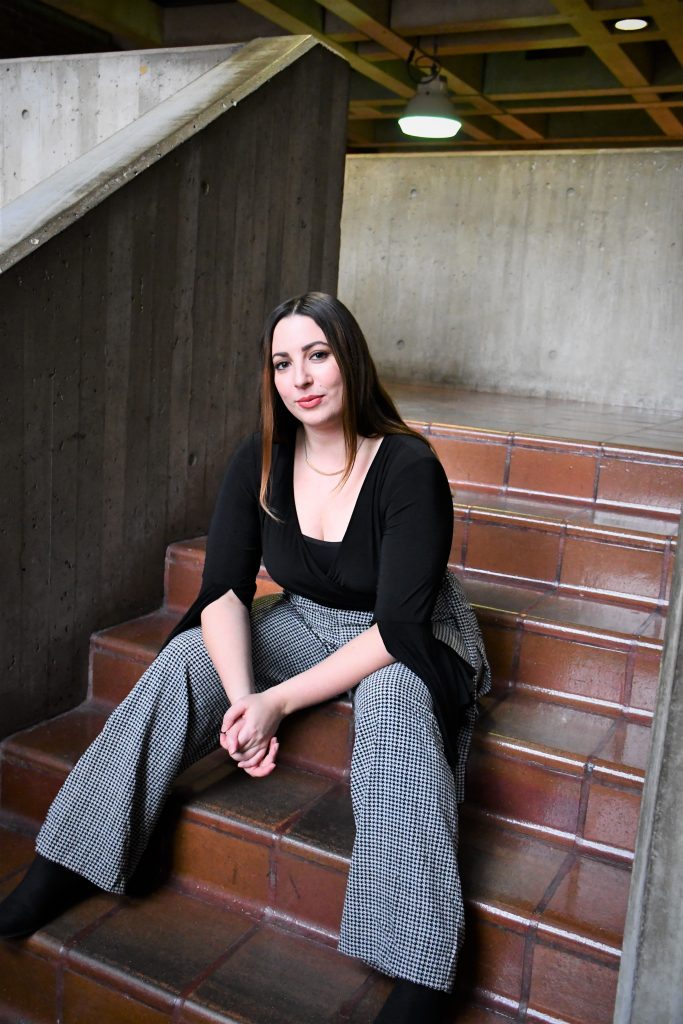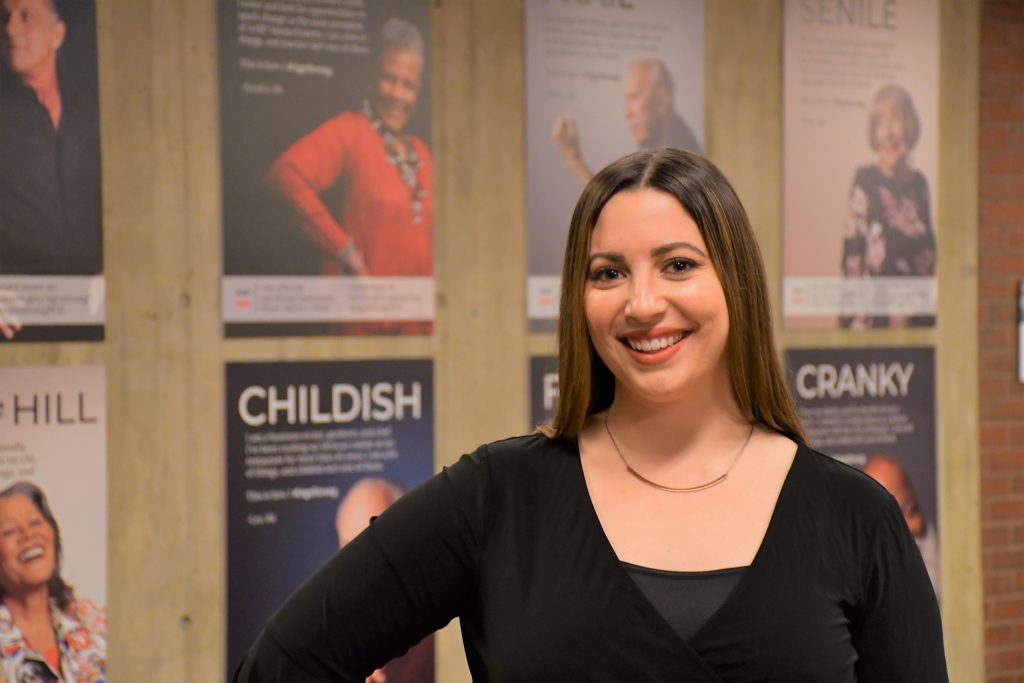Emerson Alumna Leads Campaign to Defy Negative Stereotypes Around Aging

By Molly Loughman
Boston anticipates its senior population to grow nearly 50 percent by 2030. To better serve these residents, the city organized the Age Strong Commission, and Cassandra Baptista ’11, MA ’19 is leading the effort to promote positive messaging around growing older.

Mayor Marty Walsh announced the Age Strong Commission in January. At that time, Baptista—who serves as the commission’s communications director—was just beginning one of the final courses of her master’s program, Creative Thinking and Problem Solving, taught by senior affiliated faculty member Peter Seronick. There, with the problem of how to defy and dispel negative stereotypes around aging before her, Baptista conceived of the Age Strong campaign.
“In order to disrupt the current messaging, I wanted to create something unexpected,” said Baptista. “There are unfortunate archetypes that exist in our culture–like the grumpy old man, or the frumpy grandma. I thought we should challenge those implicit biases head on with images and stories that dispel them.”
Through her work in class and on the job, Baptista conceived a multi-tiered public awareness campaign that is now seen all over the city, including bus shelters, Boston Public Library locations, in local commercials, on Port Authority signage, and across social media.
In the powerful images, the Age Strong campaign subjects stand boldly under bias language often used to stereotype older people: frumpy, cranky, inactive, senile, frail, childish, over the hill, and helpless. However, Baptista explains, these people — business owners, fashionistas, volunteers, and activists — disrupt the negative messaging about aging by simply being themselves.
“There’s tension and dissonance, and I think that’s what makes it interesting. Their stories counter the labels that society often puts on them, in a way that feels bold and a little defiant,” said Baptista.
“It’s important, challenging work. Ageism feels like one of the last socially acceptable prejudices. We are peppered with messages about anti-aging, but really, what is the alternative? We are living longer than ever before; people are working longer. Not everyone wants to play bingo. The aging narrative needs to evolve along with us.”

Originally from Danbury, Connecticut, Baptista first earned a bachelor’s degree from Emerson in print and multimedia Journalism in 2011 before returning for a master’s in Marketing Communications which she completed in May.
“When I chose to come back six years later, it was to build upon my professional experience and immerse myself again in the creativity and conversations that Emerson holds space for. Where journalism taught me how to shine a light on problems, marketing — especially in the public sector — has shown me a path towards solving them,” she said.
Baptista leads Boston’s Age Strong campaign in collaboration with Mayor Martin J. Walsh, Age Strong Commissioner Emily Shea, Boston’s Department of Innovation and Technology, photographer Jason Grow, and, of course, the Bostonians featured in the campaign.
“We are showing ways that people demonstrate strength as they age–strength of community, of opinion, of cultures, and mental strength. The greatest reward has been hearing from older residents in Boston that they feel more seen and better represented. I believe that marketing, when done right, can do good,” said Baptista.
“Hopefully, this campaign sparks conversations, so that more people will understand aging can mean a lot of different things. It can be full of self-actualization and purpose. I’d love for this public awareness campaign to grow to the point where we don’t need to have a conversation about ageism anymore. Where we are less fearful and avoidant of the most natural process. Where we don’t prejudge people solely on their age — That’s the real goal: to no longer need this campaign.”
Categories